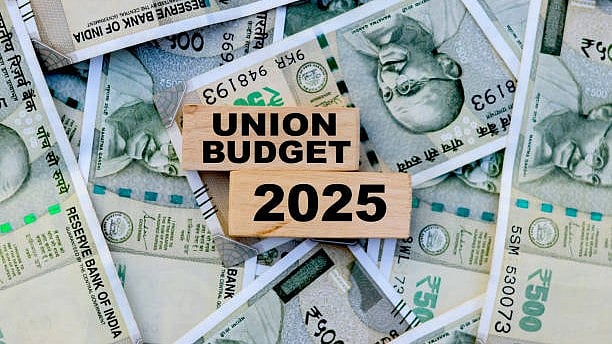
Image for representation.
Credit: iStock Photo
The Union Budget for the upcoming financial year is all set to be presented on February 1, 2025, by Finance Minister Nirmala Sitharaman. According to reports, the Narendra Modi government may consider slashing income tax for individuals earning up to Rs 15 lakhs per annum and extend the tax relief bracket in a bid to provide relief to the middle class and boost consumption.
As we near the Budget day, let's take a look at how the Union Budget is passed in the Parliament:
Budget Presentation: The Union Budget, which includes the Demand for Grants, is presented by the Finance Minister. It outlines the estimated expenditures of the central government for the upcoming financial year.
Departmental Demands: A formal request for funds, known as 'Demand for Grants, is made by various ministries or departments of the government. Each ministry prepares a detailed estimate of its expenses for the next fiscal year. These are compiled into individual demands for grants.
Scrutiny by Committees: The demands are often scrutinized by various Parliamentary Committees. These committees examine the demands in detail and can recommend modifications or cuts.
Discussion and Approval: The demands for grants are then discussed by the Lok Sabha. Members of Parliament (MPs) have the opportunity to discuss the merits and particulars of the demands. The Lok Sabha must approve each demand, and it has the power to assent, reduce, or reject a demand.
Voting on Demands for Grants: The Lok Sabha then votes on the demands for grants during the financial process based on the reports of the Parliament's Departmental Standing Committees. Following a proper Lok Sabha vote, a 'Demand for Grant' turns into a 'Grant'.
Cut Motions: MPs can propose cut motions, which are formal objections to a demand. There are three types of cut motions: Disapproval of Policy Cut, Economy Cut, and Token Cut. These motions allow MPs to express their disagreement with certain aspects of the budgetary allocations.
Guillotine: Due to time constraints, not all demands for grants can be discussed individually in the Lok Sabha. On the last day allotted for the discussion of demands, the Speaker applies a 'guillotine,' meaning that all outstanding demands are put to vote at once, without discussion.
Passing of the Budget: Once the demands for grants are approved (with or without modifications), they become part of the Appropriation Bill. The Bill, once passed, allows the government to withdraw funds from the Consolidated Fund of India to meet its expenses and liabilities.
Passing of Appropriation Bill: According to the Constitution of India, during the budgetary process, 'no money shall be withdrawn from the Consolidated Fund of India except under appropriation made by law.'
Therefore, following the Lok Sabha's vote and approval of the 'Demands for Grants', an Appropriation Bill is introduced in the budgetary process to provide for the appropriation of all funds from the Consolidated Fund of India to meet the following requirements:
The grants be voted on and passed by the Lok Sabha
The expenses were 'charged' to the Consolidated Fund of India.
The Appropriation Bill finally becomes the Appropriation Act following the approval of the President of India.
Passing of Finance Bill: The term 'Finance Bill' refers to the legislation that is typically proposed annually to implement the Government of India's financial plans for the upcoming fiscal year, as well as a Bill that lays out supplementary budgetary schemes for any duration.
Once the President signs the Finance Bill into law, it becomes the Finance Act.
The Finance Act legalizes the Budget's income side, and concludes the entire process of the passing and enactment of the same.
